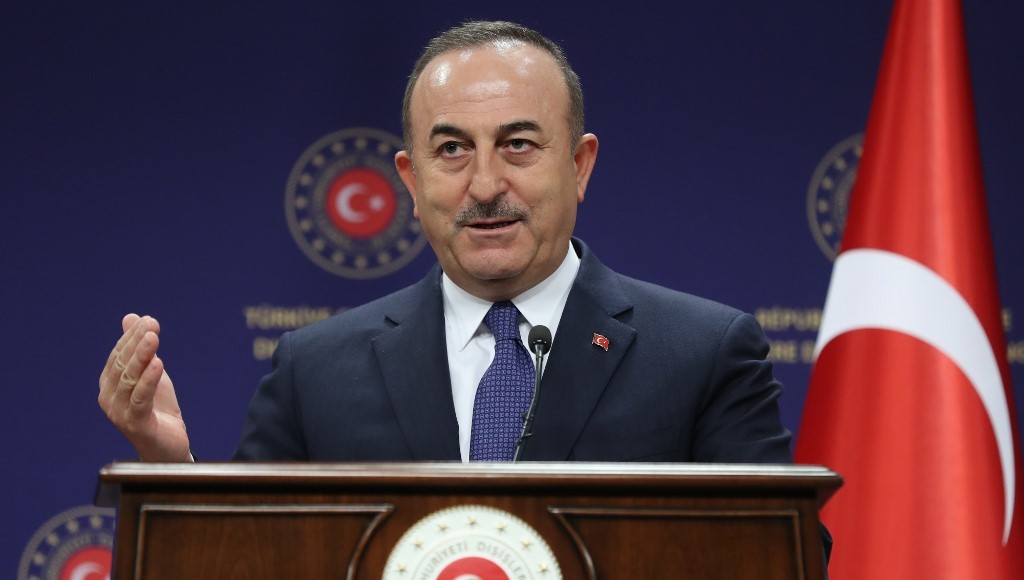Turkish Foreign Minister Mevlüt Çavuşoğlu has claimed that a group of young diplomats were behind 10 Western ambassadors’ recent call for the release of philanthropist Osman Kavala from jail, local media reported on Thursday.
Ten embassies — including those of Germany, France and the United States — on Oct. 18 issued a statement calling for the “just and speedy” resolution of the legal case against Kavala, a 64-year-old civil society leader and businessman who has been behind bars for four years on politically motivated charges linked to 2013 anti-government protests and a failed military coup in 2016.
“We have figured out how things went down. Apparently, there’s a group of young diplomats composed of so-called human rights advocates. Of course, this careless statement wouldn’t have been issued if the ambassadors hadn’t approved it, but the process for it was initiated by the young diplomats. We also know that the US ambassador got Washington and the Department of State’s approval for it,” Çavuşoğlu said during a live program on CNN Türk.
Çavuşoğlu added that proceedings had been underway to expel the ambassadors before the US and several of the other concerned countries on Monday issued identical statements saying they respected a UN convention that required diplomats not to interfere in the host country’s domestic affairs.
“We had started working to have them expelled. Some of them even had started packing their suitcases. Just as we were about to present our work during Monday’s cabinet meeting, the ambassadors took a step back. They, then, started to blame one another for what happened,” he said.
Referring to the envoys’ call for Kavala, Çavuşoğlu further noted: “This statement was unacceptable. It included instructions for the [Turkish] judiciary. I told my friends to make them [ambassadors] know their place.”
When asked whether meetings would be held with the leaders of the 10 countries during this weekend’s G20 summit in Rome, Çavuşoğlu stated that it was at Turkish President Recep Tayyip Erdoğan’s discretion.
Erdoğan, who had originally threatened the ambassadors on Thursday and then doubled down — declaring the 10 ambassadors persona non grata — in televised comments on Saturday, on Monday announced, after a cabinet meeting at which his ministers reportedly advised him about the economic dangers of escalating tensions with some of Turkey’s closest allies and trading partners, that the 10 ambassadors had learned their lesson and “will be more careful now.”
Erdoğan’s change in attitude, which came after identical statements were issued by the US and some other countries saying they respected a UN convention that required diplomats not to interfere in the host country’s domestic affairs, was widely considered by international media outlets as a “step back” on the president’s part.
“How did I take a step back? I am on the offensive. There is no stepping back in my book,” Erdoğan told reporters on Wednesday, adding, however, that they would “do what is necessary” regarding a European Court of Human Rights (ECtHR) ruling on Kavala.
The ECtHR ruled in December 2019 that the prolonged pretrial detention of Kavala was in violation of the European Convention on Human Rights and ordered his immediate release. But Turkey has failed to abide by the ruling despite repeated calls by the Council of Europe’s Committee of Ministers.
